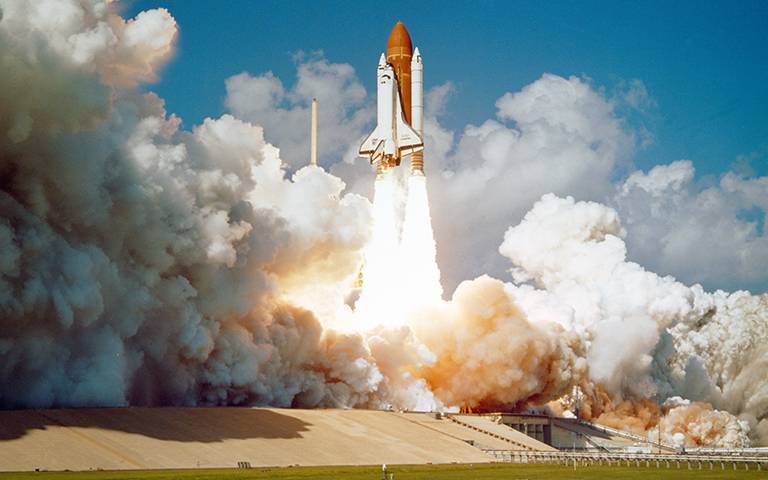Rocket launches more polluting than all other sources
1 August 2022
A recent research paper by Dr Eloise Marais showed that the climate effect of soot from rocket launches is 400-500 times more damaging than earthbound sources.

Space tourism is often cited as the next great leap in adventure tourism.
Companies like SpaceX, Virgin Galactic and Blue Origin all had mission demonstrations in 2021.
Alongside the booming satellite industry, the number of rocket launches is only set to increase in the future.
But new research from Associate Professor in Physical Geography Dr Eloise Marais and Research Fellow Dr Robert Ryan has shown just how damaging this trend is to the environment.
"We calculated air pollutant emissions from rocket launches in 2019 and extrapolated what we think a potential future space tourism industry will look like based on the companies that launched missions last year," she told us.
"Then we incorporated these emissions in a 3D model that represents the complex physical and chemical processes taking place in the atmosphere so that we could calculate their effects on climate."
The types of fuel available for rocket launches are relatively limited, but among the most concerning for the environment are kerosene, hydrazine and solid fuels that produce large amounts of black carbon (or soot).
Soot is very good at absorbing the sun's rays and warming the surrounding atmosphere which is a major problem when it comes to rockets.
"Rockets release soot particles into the upper layers of the atmosphere," Eloise says.
"When this happens, the black carbon can hang around for over two years (much longer than the few weeks from sources on Earth).
"That's because processes like rain wash particles very effectively out of the lower atmosphere. This doesn't occur higher up in the atmosphere, so these particles hang around.
"The much greater amount of chemicals added to the atmosphere from the aviation industry than from the space sector is often used to highlight that rockets pose very little threat to the environment, but our work is showing that this comparison is inappropriate, as the impact on climate is so much greater from rockets."
Alongside these dire warnings are other risks. For example, rockets also produce gaseous air pollutants, especially when space junk and reusable rockets like the first stage of the SpaceX rocket heat up on their return to Earth.
The chemical reactions these pollutants go through are contributing to the loss of ozone in the stratosphere, weakening our defence against harmful radiation from the sun.
"We're even finding that this ozone depletion is reversing some of the repairs achieved by the Montreal Protocol," Eloise says, referring to the landmark international agreement to phase out harmful substances like CFCs.
You can read more about this research in AGU: Advancing Earth and Space Science and The pollution caused by rocket launches, an article for BBC Future.
 Close
Close

